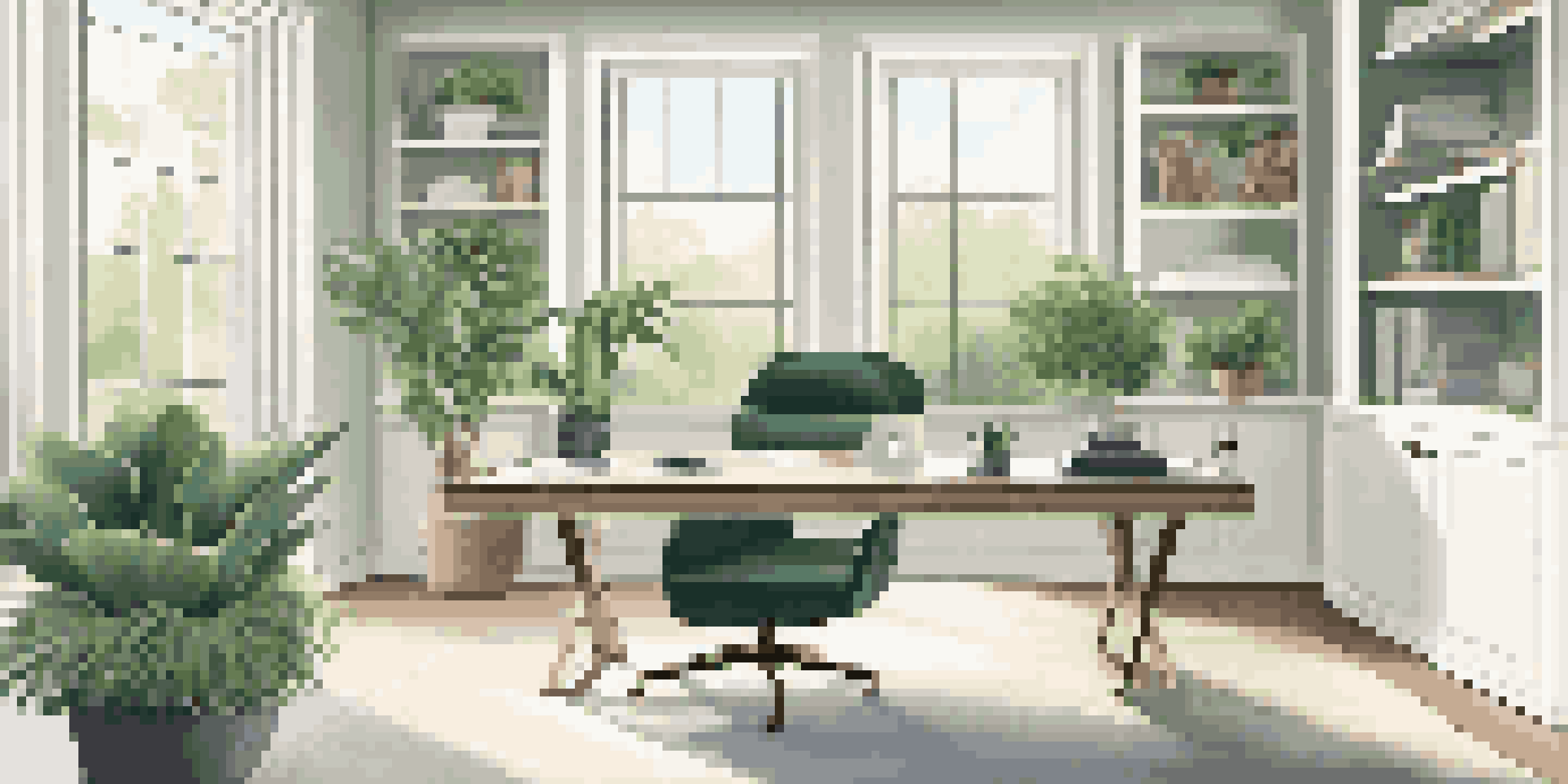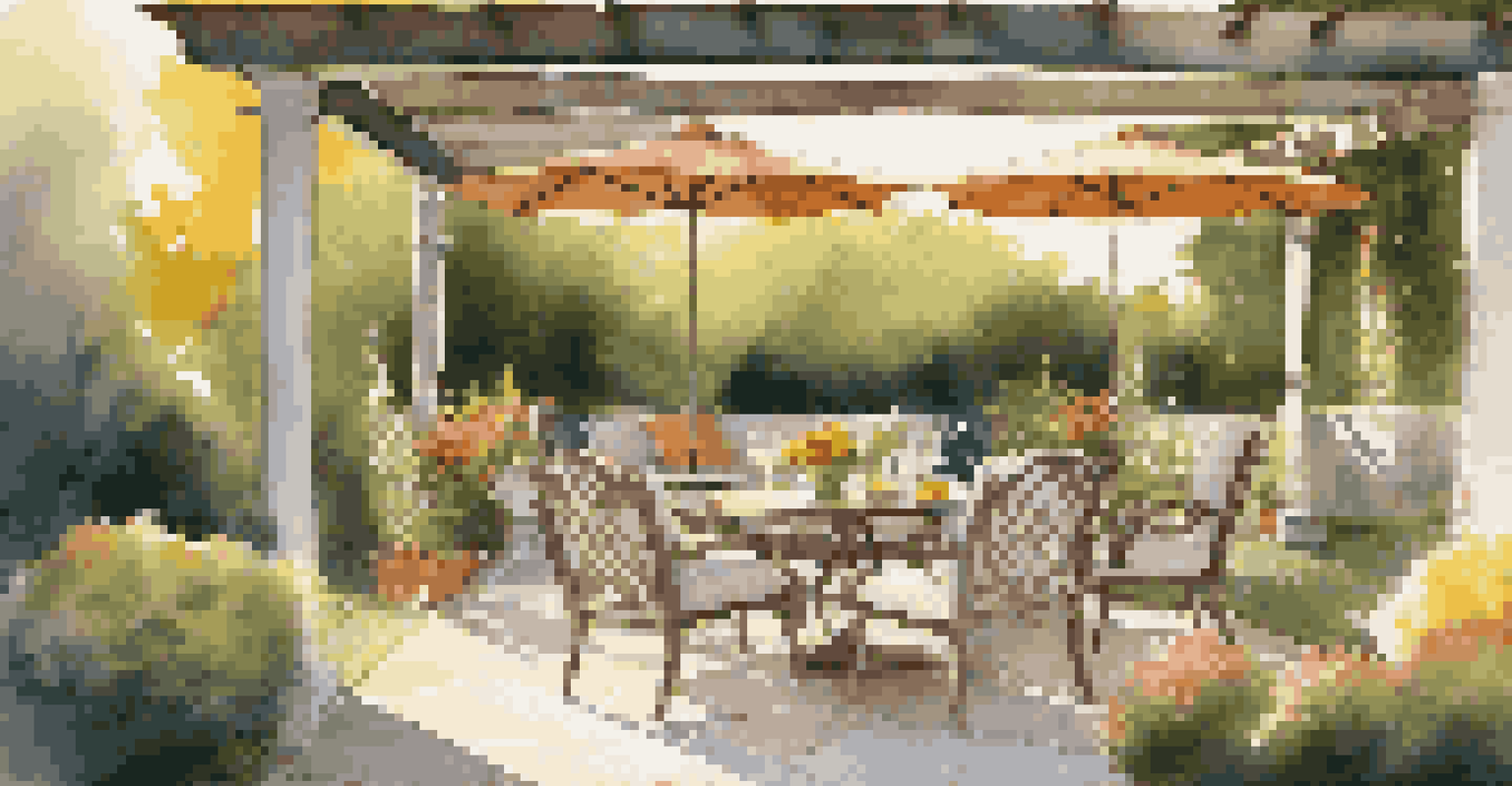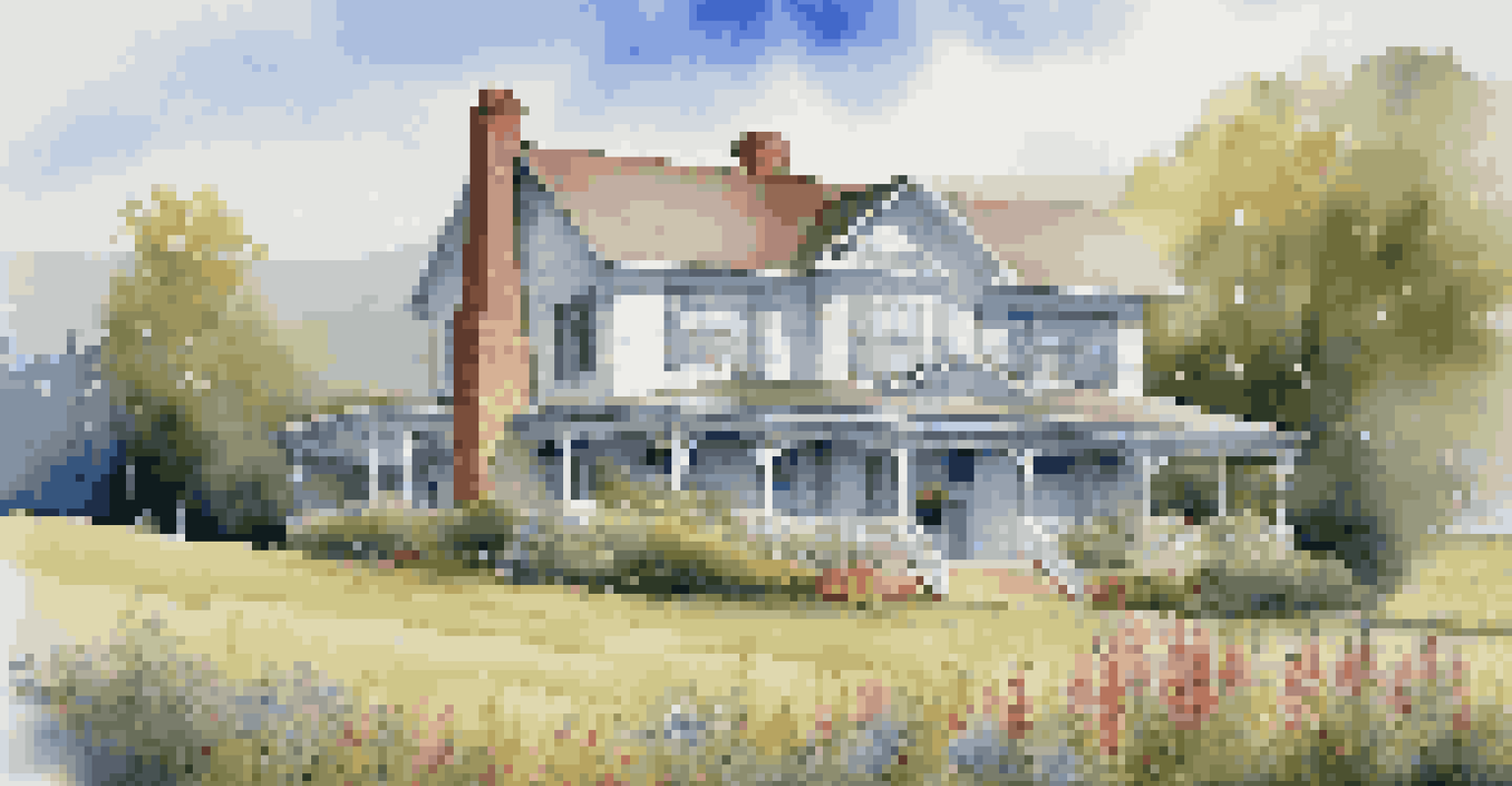Luxury Real Estate and the Impact of Remote Work Trends

The Rise of Remote Work and Its Lasting Effects
The shift to remote work has drastically changed how people view their living spaces. Many individuals are no longer tethered to a specific location due to the flexibility offered by remote jobs. This newfound freedom is encouraging buyers to consider properties in areas that were once overlooked, leading to a surge in luxury home purchases in suburban and rural locations.
Remote work has made it possible for people to choose where they live based on lifestyle rather than just proximity to the office.
The pandemic highlighted the importance of having a comfortable and inspiring home environment. As a result, buyers are seeking properties that offer more space, home offices, and amenities that cater to their lifestyle. This demand for larger homes in serene settings is reshaping luxury real estate markets across the globe.
Moreover, the remote work trend has also led to a reevaluation of what luxury means. Buyers are now prioritizing features that enhance their daily lives, such as high-speed internet, outdoor spaces, and proximity to nature, rather than just traditional luxury elements like opulence and grandeur.
Shifting Preferences in Luxury Home Features
As remote work becomes the norm, the features that buyers prioritize in luxury homes are changing dramatically. Open floor plans that allow for multifunctional spaces are now in high demand. Homebuyers are envisioning areas that can serve as both workspaces and relaxation zones, making versatility essential in their property search.

Additionally, outdoor spaces have gained significance, with buyers looking for homes that offer expansive gardens, patios, or terraces. The pandemic showed many the importance of having a personal oasis where they can unwind and enjoy nature without leaving home. This desire for a seamless indoor-outdoor lifestyle is becoming a hallmark of luxury properties.
Remote Work Redefines Luxury Living
The rise of remote work is shifting buyer preferences towards larger homes with functional spaces and outdoor amenities.
Finally, technology has taken center stage in the luxury market. Features like smart home systems, high-tech security, and energy-efficient appliances are now expected rather than just desired. Homebuyers are increasingly looking for properties that integrate technology to enhance their living experience and cater to modern conveniences.
The Appeal of Suburban and Rural Luxury Living
The trend toward remote work has opened up new possibilities for luxury living outside urban centers. Suburban and rural areas are experiencing a renaissance as buyers seek more space and tranquility away from the hustle and bustle of city life. This has led to a notable increase in demand for luxury properties in these regions.
Luxury is not about the money; it's about the experience and the way you live.
Many buyers are now prioritizing community amenities and lifestyle offerings found in suburban areas, such as parks, recreational facilities, and local shops. They are searching for neighborhoods that provide a balance of luxury and a strong sense of community, making these locations particularly appealing.
This shift not only benefits buyers but also stimulates local economies in suburban and rural areas. As luxury real estate flourishes outside major cities, it brings new investment and development opportunities, further attracting affluent buyers looking for a change of pace.
Impact on Urban Luxury Real Estate Markets
While the demand for suburban and rural properties is rising, urban luxury real estate markets are also adapting. Many city dwellers are reevaluating their needs, leading some to downsize or seek properties that offer more flexibility. This requires urban luxury developers to rethink their offerings to cater to changing buyer preferences.
As a result, we are seeing a trend where urban luxury condos are incorporating more amenities that support remote work, such as co-working spaces and enhanced technology. Developers are recognizing that the traditional luxury apartment model must evolve to meet the needs of today’s buyers who may spend more time at home.
Suburbs Gain Popularity Among Buyers
Affluent buyers are increasingly seeking luxury properties in suburban and rural areas for more space and tranquility.
Moreover, some buyers are opting for second homes in urban areas as a way to maintain a city presence while enjoying the benefits of remote work. This dual approach allows them to enjoy the vibrancy of city life while also having a retreat in the suburbs or countryside.
The Role of Technology in Luxury Real Estate Sales
Technology plays a crucial role in the luxury real estate market, especially in a remote work landscape. Virtual tours, 3D floor plans, and drone footage are transforming how properties are showcased, allowing potential buyers to explore homes from the comfort of their own space. This tech-savvy approach is making the property search more accessible and efficient.
Furthermore, the use of data analytics is helping agents understand buyer preferences and market trends more effectively. By analyzing search behaviors and preferences, real estate professionals can tailor their offerings to meet the specific needs of luxury buyers. This leads to a more personalized and satisfying home-buying experience.
Online platforms and social media are also becoming essential tools for luxury real estate marketing. They allow agents to reach a broader audience and showcase properties in innovative ways. As remote work continues to influence the market, these technologies will play an even more significant role in how luxury homes are bought and sold.
The Future: Trends That Will Shape Luxury Real Estate
Looking ahead, the luxury real estate market will likely continue to evolve alongside remote work trends. As more companies embrace flexible working arrangements, we can expect a sustained interest in properties that offer spacious environments conducive to both work and relaxation. This long-term shift will redefine what buyers seek in luxury homes.
Sustainability is another trend that is becoming increasingly important. Buyers are now considering eco-friendly features as a key component of luxury living. Energy-efficient appliances, sustainable materials, and smart home technologies that reduce environmental impact are becoming essential in the luxury real estate conversation.
Technology Transforms Real Estate Sales
The use of virtual tours and data analytics is revolutionizing how luxury homes are marketed and sold in today's remote work environment.
Finally, the desire for wellness-oriented properties is on the rise. Buyers are looking for homes that promote a healthy lifestyle, whether through design that maximizes natural light or amenities that encourage fitness and well-being. As health and wellness take center stage, luxury homes will increasingly reflect these values.
Conclusion: Embracing Change in Luxury Real Estate
The impact of remote work on luxury real estate is profound and far-reaching. As buyers adapt to new ways of living and working, the demand for properties that cater to these changes will continue to grow. Luxury real estate professionals must stay agile and responsive to these evolving needs to remain competitive in the market.
By understanding the shifting preferences and priorities of buyers, real estate agents can better serve their clients and make informed decisions about property investments. Embracing these changes will not only benefit agents but also enhance the overall experience for luxury homebuyers.

Ultimately, the luxury real estate market is at a fascinating crossroads, with the potential for innovation and growth. Those who adapt and embrace the trends brought on by remote work will find themselves at the forefront of this dynamic industry.